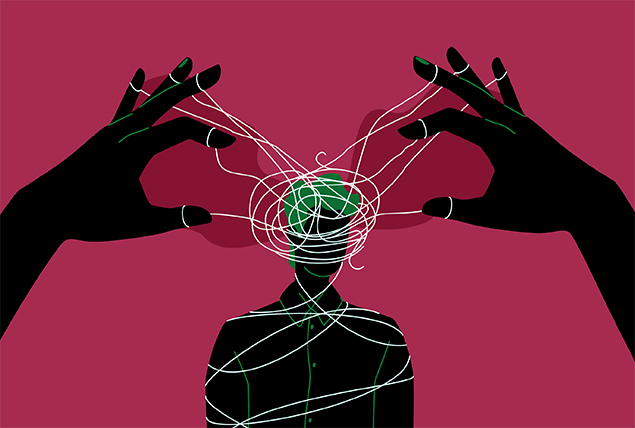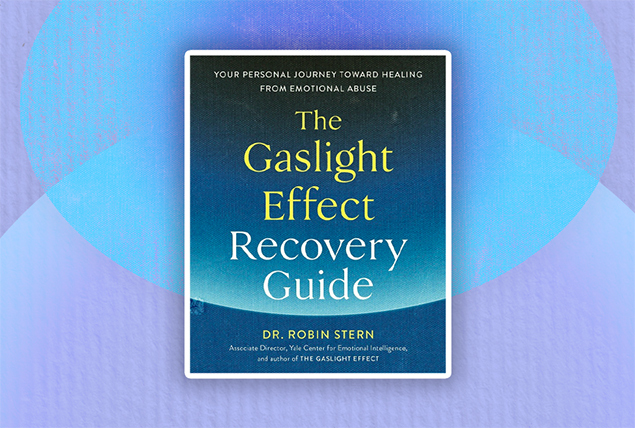Many LGBTQ+ People Are Experiencing Medical Gaslighting, Study Says

Members of the LGBTQ+ community tend to face more discrimination and disparities than cisgender, heterosexual people in various aspects of life, including healthcare.
Along with navigating a system fraught with institutional barriers, some LGBTQ+ people are twice as likely to experience medical gaslighting, according to a new study titled "Breaking Barriers and Fostering Trust: Insights into LGBTQ+ Experiences in Healthcare."
LGBTQ+ discrimination in healthcare
Healthgrades, a company that provides information about physicians and healthcare providers, and OutCare Health, a national LGBTQ+ equity nonprofit, collaborated on the joint 2023 study. It surveyed 952 adults who identify as LGBTQ+ and 1,049 who identify as cisgender and heterosexual (cishet).
Participants answered questions regarding their healthcare history and interactions with healthcare providers.
29 percent of LGBTQ+ respondents said they felt their doctor dismissed them or didn't take them seriously regarding their concerns or symptoms.
Among other findings, LGBTQ+ respondents were less likely to have had a health screening in the past 12 months and twice as likely to have skipped an appointment because of prior negative experiences.
Only 47 percent of LGBTQ+ people said they felt confident communicating with their doctor, compared to 63 percent of cishet respondents. When asked if they thought their doctor listened to their concerns about prescriptions or treatments, 49 percent of LGBTQ+ and 61 percent of cishet respondents said yes. Moreover, 44 percent of LGBTQ+ respondents agreed with the statement, "My doctor takes my opinions seriously," compared to 57 percent of cishet respondents.
Additionally, about 47 percent of LGBTQ+ respondents reported being medically gaslit, compared to 26 percent of their cishet peers.
Some barriers to healthcare, such as high out-of-pocket costs, impact nearly all demographics, but LGBTQ+ people are often disproportionately affected, according to the study. Similar to other marginalized groups, including people of color, LGBTQ+ people are also more likely to face distinct prejudice and biases that can lead to medical trauma, at worst, or inadequate care, at best.
"Overall, less than half of LGBTQ+ people are satisfied with their current doctor, and only 37 percent feel respected by them—much less than cisgender, heterosexual experiences," the Healthgrades study authors wrote. "This disparity shows that doctor-patient relationships aren't as strong as they should be to help drive purposeful conversations that lead to productive care.
"If LGBTQ+ patients feel like they can't turn to professional help when health concerns arise, they risk missing out on care that can improve their livelihoods and long-term health."
What is medical gaslighting?
Gaslighting is a form of psychological and emotional abuse in which a person manipulates you into questioning your reality, denies evidence you present or makes you feel as if you're imagining things, according to Cleveland Clinic.
Medical gaslighting occurs when a healthcare provider dismisses or downplays a patient's symptoms, which can have multiple mental and physical health ramifications, according to a New York Times article. People may feel powerless, ashamed or worthless, and may experience depression or anxiety, which can profoundly affect their overall health and quality of life. Medical gaslighting may lead to delayed, incorrect or missed diagnoses.
Social and cultural identities such as race, ethnicity and socioeconomic status, can make a person's experience substantially different.
The following data from the Healthgrades study illustrates how prevalent medical gaslighting and other forms of medical discrimination and abuse are in the LGBTQ+ community:
- 29 percent of LGBTQ+ respondents said they felt their doctor dismissed them or didn't take them seriously regarding their concerns or symptoms, 142 percent higher than the rate among cishet people.
- 18 percent of LGBTQ+ people said they'd experienced medical trauma, 125 percent higher than the rate among cishet respondents.
- 15 percent of LGBTQ+ respondents said a healthcare provider had told them symptoms they believed to be physical were psychological or "all in their head," 150 percent higher than the rate among cishet respondents.
- 10 percent of LGBTQ+ respondents said they'd experienced medical discrimination, 150 percent higher than the rate of cishet people.
Who is most likely to face medical discrimination?
The LGBTQ+ community consists of multiple subgroups, some of whom—particularly trans and nonbinary people—tend to face more severe disparities and overt discrimination than others, according to the Healthgrades research.
Additionally, various other factors, including social and cultural identities such as race, ethnicity and socioeconomic status, can make a person's experience substantially different from others with a similar gender identity or sexual orientation.
Different aspects of an individual's identity can intersect and predispose them to challenges and potential harm.
What should you do if you experience institutionalized or individual discrimination?
If you feel you're facing overt or indirect discrimination at the doctor's office for any reason, including your identity as an LGBTQ+ person, consider taking the following steps:
- Bring a trusted family member or friend to your appointments to support and advocate for you if you can.
- Always take notes during your visit and ask questions if you don't fully understand something you've been told.
- Record your consultation. In some states, this requires your doctor's consent, so get their OK or check your local laws before doing so secretly.
- Get a second opinion from another doctor.
- Find a different provider, if necessary.
There are trusted resources online that can help you with advice about handling discrimination and finding an inclusive provider. These three links may be useful as you begin that journey:


















